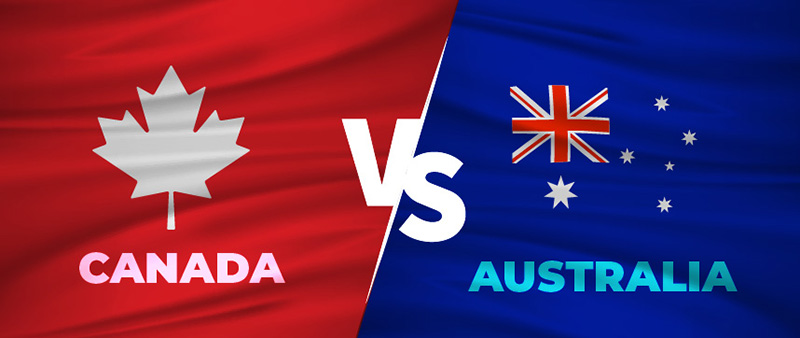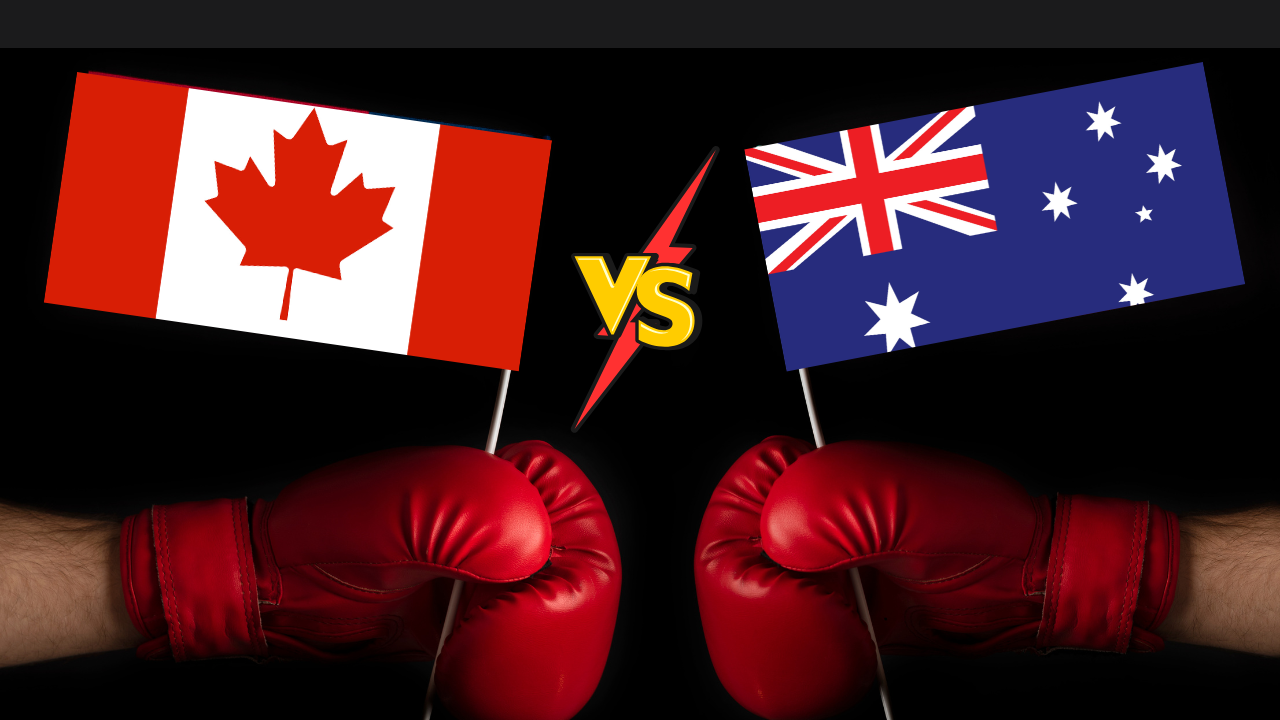Canada vs. Australia: A Student’s Guide to Choosing the Perfect Study Destination

1. Academic Landscape
1.1. Quality of Education
Both Canada and Australia are known for their top-notch education systems. Canadian universities like the University of Toronto and McGill University often rank highly in global listings. Australian institutions such as the University of Melbourne and Australian National University also shine on the world stage.
I remember chatting with Sarah, a friend who studied in Canada. She always raved about the hands-on learning approach in her engineering program. On the flip side, my cousin Jake in Australia couldn’t stop talking about the cutting-edge research facilities at his university.
1.2. Popular Fields of Study
Canada is a go-to for programs in artificial intelligence, renewable energy, and business. Australia, meanwhile, is a hotspot for environmental sciences, marine biology, and tourism management.
1.3. Research Opportunities
Both countries offer fantastic research prospects. Canada’s focus on AI and clean energy is exciting, while Australia’s unique ecosystem makes it perfect for environmental and marine studies.
2. Admission Requirements and Processes
2.1. Language Proficiency Tests
Both countries accept IELTS and TOEFL. Canada also recognizes the CELPIP test, which might be easier for some students.
2.2. Academic Prerequisites
Generally, both countries look for strong academic backgrounds. However, Australian universities might be a tad more flexible with entry requirements for some programs.
2.3. Application Deadlines and Procedures
Canadian universities often have earlier application deadlines, sometimes up to a year in advance. Australian institutions tend to have more flexible timelines.
3. Cost of Education and Living
3.1. Tuition Fees Comparison
On average, tuition fees in Canada are slightly lower than in Australia. However, this can vary greatly depending on the program and institution.
3.2. Living Expenses
Cities like Toronto and Vancouver in Canada, and Sydney and Melbourne in Australia, can be quite pricey. However, there are more affordable options in both countries if you look beyond the major cities.
3.3. Scholarships and Financial Aid
Both countries offer various scholarships for international students. Canada’s government-funded options might give it a slight edge, but Australia has some excellent university-specific scholarships too.
4. Student Life and Culture
4.1. Campus Environment
Canadian campuses often have a cozy, community feel, even in big cities. Australian universities tend to have a more laid-back vibe, with lots of outdoor spaces.
4.2. Extracurricular Activities
Both countries offer a wide range of activities. Canada might have the upper hand in winter sports, while Australia’s beaches are perfect for water activities.
4.3. Cultural Diversity and Integration
Both nations are melting pots of cultures. You’ll find yourself surrounded by people from all over the world, making it easy to feel at home.
5. Post-Graduation Opportunities
5.1. Work Permits and Visas
Canada’s Post-Graduation Work Permit allows you to work for up to 3 years after graduating. Australia’s Temporary Graduate visa (subclass 485) offers similar opportunities, with durations varying based on your qualification.
5.2. Job Market Outlook
Both countries have strong job markets for graduates. Canada’s tech scene is booming, while Australia’s mining and tourism sectors often have good opportunities.
5.3. Pathway to Permanent Residency
Canada’s Express Entry system is often seen as more straightforward for skilled graduates. Australia’s pathway can be a bit more complex but still achievable for many international students.
6. Climate and Geography
6.1. Weather Patterns and Seasonal Variations
Canada’s winters can be pretty chilly, especially inland. Australia’s climate is generally warmer, but can vary greatly depending on where you are in the country.
6.2. Natural Landscapes and Attractions
Canada’s mountains, lakes, and forests are breathtaking. Australia’s beaches, reefs, and unique wildlife offer a completely different but equally amazing experience.
6.3. Urban vs. Rural Study Options
Both countries offer a mix of bustling city campuses and quieter rural options. It really comes down to personal preference.
7. Healthcare and Safety
7.1. Medical Insurance for International Students
Both countries require international students to have health insurance. Canada’s public healthcare system might be a bit easier to navigate.
7.2. Campus Security Measures
Universities in both countries take student safety seriously, with various security measures in place.
7.3. Overall Safety Rankings
Both Canada and Australia consistently rank as some of the safest countries in the world for international students.
Summary
Choosing between Canada and Australia isn’t easy – they’re both fantastic options for international students. Your decision might come down to specific program offerings, climate preferences, or post-graduation plans. Whatever you choose, you’re in for an amazing educational adventure!
Frequently Asked Questions (FAQs)
- Which country offers better job prospects after graduation? Both offer good prospects, but it depends on your field. Canada’s tech industry is booming, while Australia has strong mining and tourism sectors.
- How do the visa processes compare between Canada and Australia? Both have student-friendly policies, but Canada’s post-graduation work permit system is often considered more straightforward.
- Which destination is more affordable for international students? On average, Canada tends to be slightly more affordable, but costs can vary greatly depending on the city and institution.
- Are there language barriers in either country? English is widely spoken in both countries. However, you might encounter French in some parts of Canada.
- How do the education systems differ between Canada and Australia? While both offer high-quality education, Canadian universities often follow a more structured curriculum, while Australian institutions might offer more flexibility in course selection.







